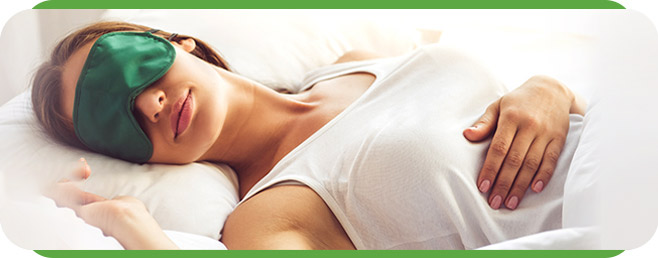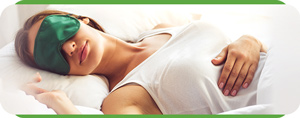National Sleep Awareness Week
In Search of a Better Night’s Sleep


The return of Daylight Saving Time has many focused on sleep. While friends and coworkers bemoan their lost hour of rest, leading sleep advocacy groups seek to draw our attention to the larger issue at hand: Americans need not only more sleep but better sleep. One such group, The National Sleep Foundation (NSF), is celebrating its annual Sleep Awareness Week in April, by highlighting the benefits of quality sleep. This celebration of sleep will also focus on sleep disorders, specifically on how better prevention and treatment of such disorders could lessen their burden on society.
While most of us know the importance of getting a good night’s rest, we don’t always prioritize sleep. In fact, TIME Health even published an article recently on how to train yourself to sleep less. In our desire to make more time, we have, unfortunately, forgotten what it is to be rested. We aren’t getting enough sleep, and the sleep we are getting isn’t the restful, quality sleep our bodies need. One of the goals of Sleep Awareness Week this year is to point out ways in which we can improve our sleep by changing our bedtime habits, from turning off the blue lights emitted by electronics to avoiding that late-night snack.
What if you’ve made these changes, though, and still aren’t sleeping any better? This is when the possibility of a sleep disorder becomes much more likely. According to the National Institutes of Health (NIH), sleep disorders, such as obstructive sleep apnea (OSA), have been linked to a number of health problems, from obesity to depression to heart disease. Yet many of the people suffering from OSA don’t realize they have the condition. The American Academy of Sleep Medicine reports that it is a “hidden health crisis” in America, which cost the U.S. nearly $150 billion in 2015 and affects nearly 30 million American adults.
Obstructive Sleep Apnea is a condition characterized by complete and partial airway obstructions, which can occur when the tongue and muscles relax during sleep, the lower jaw falls back toward the throat or the airway becomes blocked. These obstructions can occur hundreds of times each night and can lead to problems such as headaches, high blood pressure, daytime sleepiness, insomnia, diabetes, and depression. If left untreated, OSA may lead to heart attack, stroke and death.
Fortunately, doctors like those at the Koala® Center For Sleep & TMJ Disorders are working to provide non-invasive treatment measures, such as Oral Appliance Therapy, for patients struggling with OSA. If you are experiencing symptoms of OSA, consider asking your physician for a sleep study, which is used to diagnose the disorder and its severity. Oral Appliance Therapy has proven to be an effective, scientifically-based treatment alternative that patients may find more comfortable than PAP Therapy and surgery. The purpose of the appliance is to hold the jaw in a position that allows the airway to remain as open and firm as possible during sleep. Oral appliances are similar to athletic mouth guards but less bulky and completely non-invasive. Oral sleep appliances are covered by most medical insurance plans.

Additional Services You May Need
▸ KoalaKIDZzz®
▸ Sleep Apnea
▸ Snoring
▸ TMJ Disorder
▸ Fatigue
▸ Sleep Disorders
▸ Weight Loss
▸ CPAP Alternative
▸ Oral Appliances




